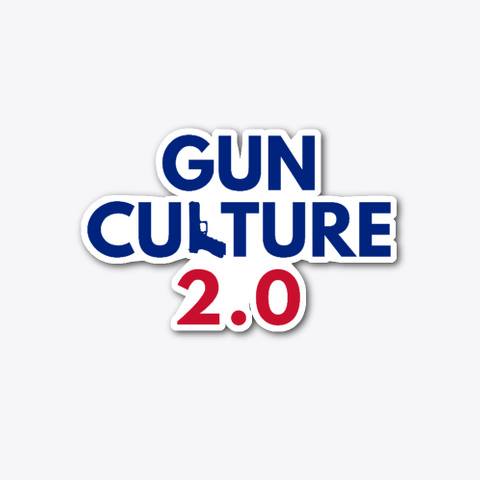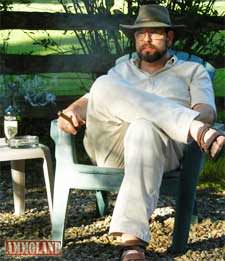
U.S.A. – -(Ammoland.com)-“Through study and personal experience, I am trying to understand what Michael Bane calls ‘Gun Culture 2.0.’” Wake Forest University Professor of Sociology David Yamane explains on his blog of the same name. “According to Bane, the center of gravity of American gun culture has shifted from Gun Culture 1.0 — based in hunting and recreational/sport shooting — to Gun Culture 2.0 — based in concealed carry and armed self-defense.”
To elaborate, Yamane has posted a series of what he has titled “Light over Heat” videos, two especially relevant to this discussion being “Gun Owner Diversity and the Changing Face of Gun Owners Today,” and “What is Gun Culture 2.0?”
In the first, Prof. Yamane presents some interesting numbers in light of the excitement many in the gun industry and gun advocacy camps have expressed about the millions of new gun owners that they perceive as having joined their ranks through first-time purchases. Of these new owners, most coming from previously “gun-free” households, 48% are female, 21% black, and 19% Hispanic. Additionally, 35% live in urban areas, and 61% bought handguns only.
This might be a good time to ask “How do they vote?” before uncorking the champagne. We pretty much have those numbers, and they pretty much tell us we shouldn’t expect a sea change break with the Democrat Party and its “gun control” platform. Guns are simply not the most important identity or political priority for them. They don’t see a problem with that platform as articulated for them by their preferred political leaders and media outlets.
Yamane expands on that in the second video, noting that in the scheme of things, from hunting, sport shooting, competitions, collecting, and self-defense, “Second Amendment advocacy” is a “subculture,” that is not the “center of gravity.”
Yamane elaborated in a podcast interview with Brady United (yes, that Brady), where he said:
“[G]un ownership is not at all part of how they see themselves. You know, I think there’s a lot of excitement among, the gun rights community when they saw all these new people buying guns, but there’s no necessary connection between them buying a gun, them developing a gun owner identity, and then … becoming activated as a gun owner politically.”
I wish he were wrong, but experience says he’s not, and the divisions in the “gun culture” are more than just between longtime gun owners and the “noobs.” There’s also the rift between activists and the “Fudds” that goes beyond the choice of shotgun or Evil Black Rifle and divides politically, with groups like Sportsmen and Sportswomen for Biden, Gifford’s Gun Owners for Safety, and what I called “Fudds for Chipman.” It’s reminiscent of Michael Bloomberg’s “Average Joe” campaign of a few years before, and the “Astroturf” American Hunters and Shooters Association before that.
What these groups do is feed the “responsible gun owner” meme, convincing those who haven’t looked at the implications of self-proclaimed “commonsense gun laws,” and at some of the more radical goals that the prohibitionists have waiting in the wings once prioritized “doable” hurdles are cleared. That’s not on the new gun owners’ radar, so Democrat platform platitudes (like “[I]t shouldn’t be easier to get a gun than a driver’s license. We believe we should ensure that guns don’t fall into the hands of terrorists”) don’t strike them as deliberate misdirection loaded with hidden traps.
I mean, who wants armed terrorists, right? That the “solution” might be something other than prior restraints imposed in secret and without due process doesn’t have to factor into things if the wrong questions are intentionally asked.
Back to Prof. Yamane, two other things he said point to a new strategy the “gun control” groups are employing designed to capitalize on influencing both new gun owners and the older “sporting purposes” crowd. The first is from his aforementioned blog:
“My approach to Gun Culture 2.0 is inspired by philosopher Baruch Spinoza: ‘I have sedulously endeavored not to laugh at human actions, nor to lament them, nor to detest them, but to understand them.’”
The second is from his Brady podcast interview:
“[F]or those people for whom it is an important part of their identity, you know, I think you want to recognize that if you suggest in any way that there’s some flaw with a person’s identity, or that their activities are somehow, you know, morally problematic, that that cuts to the core of their sense of who they are. Whether it’s, their gun ownership status, or any other activity that they partake in. So, that’s where, where the identity part comes in. Because, again, at the start, I said that the important part of understanding sociology of guns and gun culture is that the vast majority of guns and gun owners are not engaging in harmful problematic activities. And so, if in trying to target those who are, we include the others under that same umbrella, then those people are simply going to recoil from that. They don’t want to be painted with that same broad brush.”
This goes to the heart of a strategy being promoted by a new group that calls itself “97 percent,” and claims:
“97 percent is a bipartisan group of gun owners and non-gun owners representing the vast majority of Americans who believe in gun safety and responsible gun ownership. 97 percent is taking back the conversation from the extreme voices in the gun debate. Working with everyday Americans, gun owners and non-gun owners alike, 97percent is identifying pragmatic solutions to reduce gun violence in America.”
Essentially, they’re pushing the same load as the other grabber groups but being more polite about it.
Meanwhile, the unrestrained and impulsive other hand is out there calling gun owners terrorists, and thinking themselves clever accusing and then ridiculing them of being underendowed. And the push to make incremental “progress” toward the documented end goal of a violence monopoly that they deny wanting continues. Just ask the founder of the Brady group, whose latter-day voices sound so “reasonable” in the Yamane interview:
“We’re going to have to take one step at a time, and the first step is necessarily — given the political realities — going to be very modest. . . . [W]e’ll have to start working again to strengthen that law, and then again to strengthen the next law, and maybe again and again. Right now, though, we’d be satisfied not with half a loaf but with a slice. Our ultimate goal — total control of handguns in the United States — is going to take time. . . . The first problem is to slow down the number of handguns being produced and sold in this country. The second problem is to get handguns registered. The final problem is to make possession of all handguns and all handgun ammunition-except for the military, police, licensed security guards, licensed sporting clubs, and licensed gun collectors-totally illegal.” — Richard Harris, ‘A Reporter at Large: Handguns,’ New Yorker, July 26, 1976, at 53, 58 (quoting Pete Shields, founder of Handgun Control, Inc.) (boldface added, italics in original).”
Handguns, of course, are what the new folks who don’t know about any of this are buying.
In a way, it’s good that more people from across society are getting into some form of the “gun culture” because it’s more likely to stoke resentment and resistance if you’re trying to take something away from someone who has skin in the game. That said, joyous anticipation is unfounded, premature, and more than likely to disappoint.
If owning guns was all it took, we’d have no better pals than David Chipman and Lon Horiuchi.
About David Codrea:
David Codrea is the winner of multiple journalist awards for investigating/defending the RKBA and a long-time gun owner rights advocate who defiantly challenges the folly of citizen disarmament. He blogs at “The War on Guns: Notes from the Resistance,” is a regularly featured contributor to Firearms News, and posts on Twitter: @dcodrea and Facebook.

